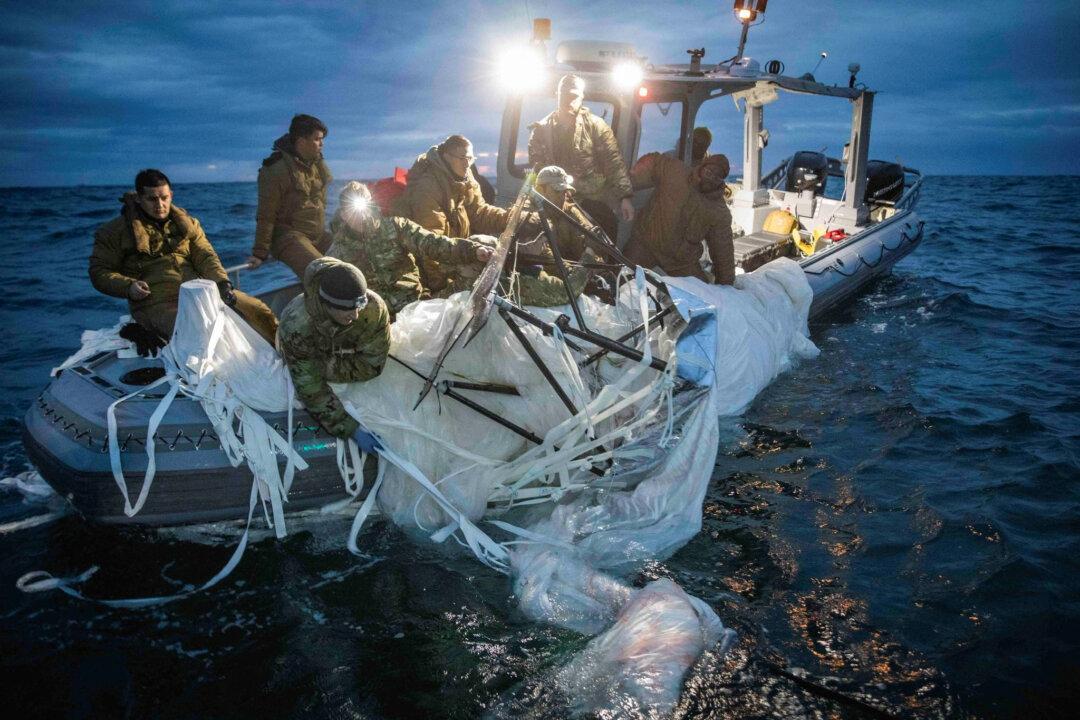U.S. President Joe Biden is seeking a meeting with Chinese communist leader Xi Jinping to discuss developments related to the United States’ shooting down a Chinese spy balloon earlier this month, and to pursue regular relations with China.
Biden ordered the balloon to be shot down when it entered airspace over the continental United States near the Idaho-Montana border on Jan. 31. The Pentagon chose to collect intelligence from the balloon, ultimately waiting until Feb. 4 to shoot it down off the coast of South Carolina.




